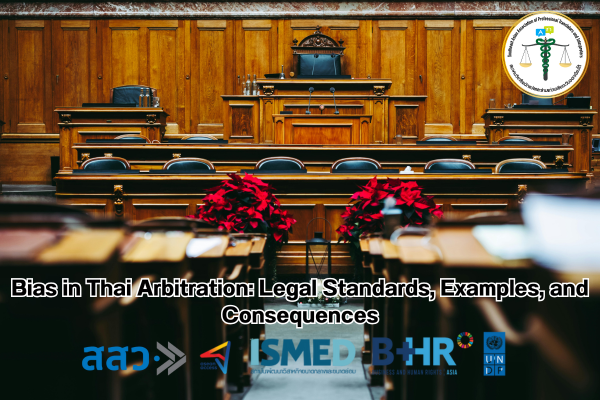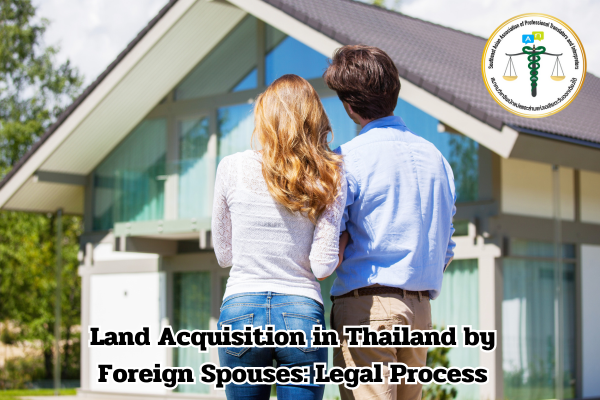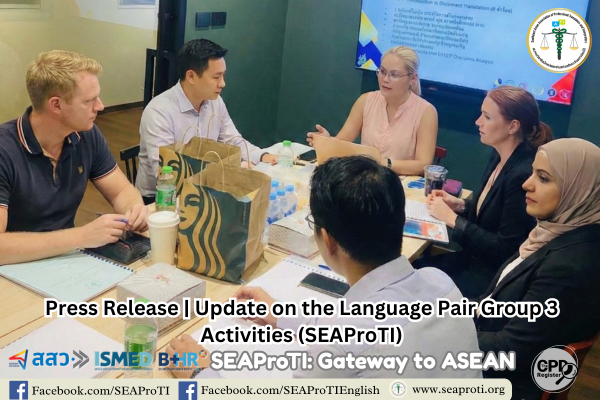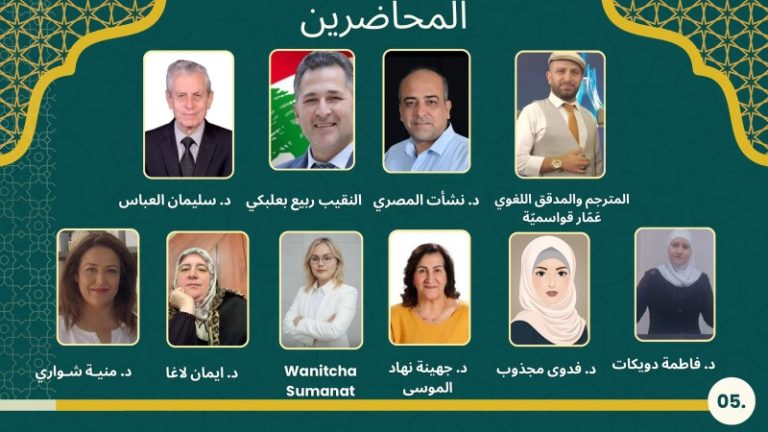Bias in Thai Arbitration: Legal Standards, Examples, and Consequences
Arbitration in Thailand is governed by the Arbitration Act B.E. 2545 (2002), which incorporates principles derived from the UNCITRAL Model Law. One of its core requirements is the impartiality and independence of arbitrators. Under Section 19, arbitrators are legally obligated to remain free of bias and to act without favor or prejudice toward either party. Any deviation from this standard can have severe legal repercussions, including the annulment of the arbitral award.
Types and Illustrative Examples of Bias
a) Assisting One Party
An arbitrator who actively aids one party in preparing cross-examination questions, witness strategies, or litigation tactics violates the duty of neutrality. For instance, if an arbitrator suggests questions that directly undermine the opposing party’s position, this conduct could result in the award being set aside under Section 40, as it compromises the integrity of the process.
b) Manipulating the Role of Interpreter
In one reported case, a claimant-appointed arbitrator, who was also a senior academic, unilaterally replaced a court-approved interpreter with the claimant’s lawyer. This substitution—executed without procedural transparency—raised serious concerns of conflict of interest and procedural unfairness, especially given the interpreter’s existing legal ties to the claimant.
c) Ex Parte Communication and Collusion
Any undisclosed communication between an arbitrator and a party outside of formal hearings constitutes a breach of impartiality. If discovered, this could lead not only to legal remedies but also disciplinary actions by professional arbitration institutions.
Legal Remedies and Challenges
a) Challenging Arbitrator Appointment (Section 20)
A party may challenge the appointment of an arbitrator at the earliest appearance of partiality. Grounds for challenge include financial interests, familial relationships, or prior professional affiliations with a party or counsel.
b) Setting Aside the Arbitral Award (Section 40)
If bias materially affects the outcome, the aggrieved party may petition the court to set aside the award. Supporting evidence could include:
- Witness testimony
- Email correspondence
- Meeting transcripts
- Procedural irregularities
International Standards and Tests for Bias
Globally, arbitral systems apply various tests to determine bias:
- Reasonable apprehension of bias (Australia, UK): Would a fair-minded observer conclude a real possibility of bias?
- Real danger of bias (stricter test): Is there an objective risk that the arbitrator cannot remain impartial?
Thailand’s approach aligns more closely with the reasonable suspicion standard, requiring evidence that casts doubt on impartiality due to interest or connection.
5. Consequences of Arbitrator Bias
| Consequence Type | Description |
|---|---|
| Legal | An arbitral award may be annulled, delaying or nullifying proceedings. |
| Ethical | The arbitrator’s credibility and standing within professional circles may suffer irreparable harm. |
| Reputational | Affects not only the arbitrator but also the reputation of Thai arbitration institutions. |
| Practical | The losing party may endure unjust financial or procedural disadvantage, leading to distrust in the system. |
Preventive Measures
To uphold the integrity of arbitration in Thailand, the following preventive mechanisms are recommended:
- Enforce clear prohibitions on ex parte communications
- Require regular ethics and impartiality training for arbitrators
- Establish transparent, independent review mechanisms within arbitral institutions
- Encourage early disclosure of any potential conflict of interest
- Empower parties to invoke Section 20 challenge rights promptly
7. Summary Table: Key Aspects of Bias in Thai Arbitration
| Aspect | Thai Law or Practice | Consequences |
|---|---|---|
| Legal basis | Arbitration Act B.E. 2545, Sections 19, 20, 40 | The award may be set aside; challenge permitted |
| Examples of bias | Party assistance, replacing the interpreter, and collusion | Legal and ethical fallout |
| Bias test | Reasonable suspicion/evidence of partiality | Arbitrator removal; reputational damage |
| Remedies | Set aside the award; challenge the appointment | May lead to retrial or litigation |
Conclusion
Bias in arbitration—whether subtle or overt—poses a direct threat to the credibility and effectiveness of dispute resolution in Thailand. While the Arbitration Act provides a legal framework for addressing such misconduct, preventive vigilance remains paramount. Ethical training, institutional oversight, and a culture of transparency are essential to preserving Thailand’s standing as a reliable arbitration venue for both domestic and international parties.
SEAProTI’s certified translators, translation certification providers, and certified interpreters:
The Southeast Asian Association of Professional Translators and Interpreters (SEAProTI) has officially announced the criteria and qualifications for individuals to register as “Certified Translators,” “Translation Certification Providers,” and “Certified Interpreters” under the association’s regulations. These guidelines are detailed in Sections 9 and 10 of the Royal Thai Government Gazette, issued by the Secretariat of the Cabinet under the Office of the Prime Minister of the Kingdom of Thailand, dated July 25, 2024, Volume 141, Part 66 Ng, Page 100.
To read the full publication, visit the Royal Thai Government Gazette
ความลำเอียงในกระบวนการอนุญาโตตุลาการไทย: กรอบกฎหมาย ตัวอย่าง และผลกระทบ
28 มิถุนายน 2568, กรุงเทพมหานคร – ในประเทศไทย ความเป็นกลางและอิสระของอนุญาโตตุลาการถือเป็นหลักพื้นฐานของกระบวนการพิจารณาโดยอนุญาโตตุลาการ ซึ่งบัญญัติไว้ใน พระราชบัญญัติว่าด้วยการอนุญาโตตุลาการ พ.ศ. 2545 มาตรา 19 กำหนดไว้อย่างชัดเจนว่า อนุญาโตตุลาการต้องปฏิบัติหน้าที่โดยปราศจากอคติหรือความลำเอียงต่อคู่ความฝ่ายใด หากมีการฝ่าฝืน ย่อมก่อให้เกิดผลทางกฎหมายที่ร้ายแรง รวมถึงการเพิกถอนคำชี้ขาดของอนุญาโตตุลาการได้
รูปแบบและตัวอย่างของความลำเอียง
ช่วยเหลือคู่ความฝ่ายหนึ่ง
หากอนุญาโตตุลาการเข้าไปมีส่วนร่วมในการช่วยเหลือคู่ความฝ่ายใดฝ่ายหนึ่ง เช่น แนะนำคำถามสำหรับการซักค้าน หรือเสนอแนวทางการโต้แย้งพยานฝ่ายตรงข้าม ถือเป็นการละเมิดหลักความเป็นกลางอย่างชัดเจน และอาจนำไปสู่การเพิกถอนคำชี้ขาดตาม มาตรา 40 ของพระราชบัญญัติฯ
เปลี่ยนล่ามโดยมิชอบ
มีกรณีหนึ่งที่อนุญาโตตุลาการฝ่ายโจทก์ ซึ่งเป็นอาจารย์มหาวิทยาลัยชื่อดัง ได้เปลี่ยนล่ามที่แต่งตั้งอย่างเป็นทางการเป็นทนายความส่วนตัวของโจทก์ โดยไม่แจ้งคู่ความอีกฝ่ายและไม่มีมติร่วมกันในคณะอนุญาโตฯ ซึ่งก่อให้เกิดข้อกังวลอย่างมากในเรื่องความเป็นกลาง และความขัดกันของผลประโยชน์
การติดต่อกับคู่ความฝ่ายใดฝ่ายหนึ่งนอกกระบวนการ (Ex Parte Communication)
การสื่อสารกับคู่ความฝ่ายใดฝ่ายหนึ่งนอกการประชุมอนุญาโตตุลาการ หรือการวางแผนล่วงหน้าโดยไม่แจ้งอีกฝ่าย ถือเป็นการละเมิดอย่างร้ายแรงต่อหลักความโปร่งใส ซึ่งอาจนำไปสู่การฟ้องร้องและทำลายชื่อเสียงของอนุญาโตตุลาการและสถาบันที่รับรอง
กลไกทางกฎหมายในการเยียวยา
การคัดค้านการแต่งตั้งอนุญาโตตุลาการ (มาตรา 20)
คู่ความมีสิทธิยื่นคำร้องคัดค้านการแต่งตั้งอนุญาโตตุลาการเมื่อมีเหตุอันควรสงสัยว่าบุคคลดังกล่าวมีความลำเอียงหรือมีผลประโยชน์ทับซ้อน เช่น ความสัมพันธ์ทางการเงิน ความเกี่ยวพันทางครอบครัว หรือการทำงานร่วมกันในอดีต
การขอเพิกถอนคำชี้ขาด (มาตรา 40)
หากพบว่ากระบวนการพิจารณาไม่เป็นธรรมเนื่องจากความลำเอียงของอนุญาโตตุลาการ คู่ความสามารถยื่นคำร้องต่อศาลเพื่อขอเพิกถอนคำชี้ขาด โดยหลักฐานอาจรวมถึง:
- คำให้การของพยาน
- อีเมลหรือข้อความการติดต่อ
- บันทึกการประชุมหรือการตัดสินใจที่ไม่เป็นทางการ
มาตรฐานสากลในการพิจารณาความลำเอียง
ในระดับสากล มีเกณฑ์ที่ใช้พิจารณาว่ามีความลำเอียงหรือไม่ เช่น:
- “ความหวั่นเกรงโดยมีเหตุผล” (Reasonable apprehension of bias): บุคคลที่มีเหตุผลและเป็นกลางจะเชื่อว่ามีความเป็นไปได้จริงที่อนุญาโตตุลาการไม่เป็นกลาง
- “อันตรายที่แท้จริงของความลำเอียง” (Real danger of bias): มีหลักฐานเชิงวัตถุที่แสดงว่าอนุญาโตตุลาการไม่สามารถเป็นกลางได้
- ประเทศไทยใช้แนวทางใกล้เคียงกับเกณฑ์ “ความสงสัยโดยมีเหตุผล” โดยพิจารณาจากพฤติการณ์แวดล้อมและหลักฐานที่แสดงถึงความเกี่ยวข้องหรือผลประโยชน์แอบแฝง
5. ผลกระทบจากความลำเอียงของอนุญาโตตุลาการ
| ประเภทของผลกระทบ | รายละเอียด |
|---|---|
| ทางกฎหมาย | คำชี้ขาดอาจถูกเพิกถอน ส่งผลให้ต้องเริ่มกระบวนการใหม่หรือเข้าสู่ศาลยุติธรรม |
| ทางจริยธรรม | ชื่อเสียงและความน่าเชื่อถือของอนุญาโตตุลาการอาจถูกทำลายอย่างร้ายแรง |
| ทางสถาบัน | สถาบันอนุญาโตตุลาการไทยอาจสูญเสียความไว้วางใจจากผู้ใช้บริการ โดยเฉพาะในระดับนานาชาติ |
| ทางภาคปฏิบัติ | คู่ความที่เสียเปรียบอาจเผชิญผลลัพธ์ที่ไม่เป็นธรรม และกระบวนการทั้งหมดอาจกลายเป็นที่เคลือบแคลง |
แนวทางในการป้องกัน
เพื่อยกระดับความน่าเชื่อถือของระบบอนุญาโตตุลาการในประเทศไทย ควรมีมาตรการป้องกันอย่างเป็นระบบ ได้แก่:
- กำหนด ข้อห้ามชัดเจนในการติดต่อคู่ความนอกการประชุม
- จัดให้มี การอบรมด้านจริยธรรมและความเป็นกลางแก่อนุญาโตตุลาการเป็นประจำ
- จัดตั้ง กลไกรับเรื่องร้องเรียนอย่างโปร่งใสและตรวจสอบได้
- ส่งเสริมให้คู่ความใช้สิทธิในการ คัดค้านการแต่งตั้ง โดยเร็วที่สุดเมื่อมีข้อสงสัย
7. ตารางสรุป: ประเด็นสำคัญของความลำเอียงในกระบวนการอนุญาโตตุลาการไทย
| ประเด็น | มาตรฐานไทย / กฎหมายที่เกี่ยวข้อง | ผลกระทบที่ตามมา |
|---|---|---|
| พื้นฐานทางกฎหมาย | พ.ร.บ. อนุญาโตตุลาการ พ.ศ. 2545 มาตรา 19, 20, 40 | คำชี้ขาดอาจถูกเพิกถอน / คัดค้านได้ |
| ตัวอย่างความลำเอียง | ช่วยเหลือคู่ความ, เปลี่ยนล่ามโดยมิชอบ, ติดต่อฝ่ายเดียว | มีผลทางกฎหมาย จริยธรรม และชื่อเสียง |
| เกณฑ์พิจารณา | ความสงสัยโดยมีเหตุผล / ความเกี่ยวพันอันไม่เหมาะสม | อาจนำไปสู่การปลดหรือเปลี่ยนอนุญาโตฯ |
| แนวทางแก้ไข | คัดค้านการแต่งตั้ง / ขอเพิกถอนคำชี้ขาด | อาจต้องเริ่มกระบวนการใหม่ทั้งหมด |
บทสรุป
พฤติกรรมที่บ่งชี้ถึงความลำเอียงของอนุญาโตตุลาการ ไม่ว่าจะในรูปแบบของการช่วยเหลือคู่ความฝ่ายใดฝ่ายหนึ่ง การใช้อิทธิพลเกินขอบเขต หรือการติดต่อส่วนตัวกับคู่ความ ย่อมบั่นทอนความน่าเชื่อถือของระบบอนุญาโตตุลาการไทย แม้กฎหมายได้กำหนดกลไกในการตรวจสอบและเยียวยาไว้แล้ว แต่การ ป้องกันด้วยจริยธรรมที่เข้มแข็งและการกำกับดูแลอย่างจริงจัง จะเป็นหนทางที่ดีที่สุดในการรักษาความยุติธรรม และส่งเสริมให้ประเทศไทยเป็นศูนย์กลางอนุญาโตตุลาการที่ได้รับความไว้วางใจจากทั่วโลก
เกี่ยวกับนักแปลรับรอง ผู้รับรองการแปล และล่ามรับรองของสมาคมวิชาชีพนักแปลและล่ามแห่งเอเชียตะวันออกเฉียงใต้
สมาคมวิชาชีพนักแปลและล่ามแห่งเอเชียตะวันออกเฉียงใต้ (SEAProTI) ได้ประกาศหลักเกณฑ์และคุณสมบัติผู้ที่ขึ้นทะเบียนเป็น “นักแปลรับรอง (Certified Translators) และผู้รับรองการแปล (Translation Certification Providers) และล่ามรับรอง (Certified Interpreters)” ของสมาคม หมวดที่ 9 และหมวดที่ 10 ในราชกิจจานุเบกษา ของสำนักเลขาธิการคณะรัฐมนตรี ในสำนักนายกรัฐมนตรี แห่งราชอาณาจักรไทย ลงวันที่ 25 ก.ค. 2567 เล่มที่ 141 ตอนที่ 66 ง หน้า 100 อ่านฉบับเต็มได้ที่: นักแปลรับรอง ผู้รับรองการแปล และล่ามรับรอง

























